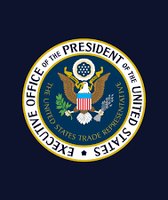Get PolitiFact in your inbox.
Donald Trump and Bernie Sanders have something in common: They’re both bashing foreign trade agreements to appeal to voters.
The two men have different takes on why the current trade situation is a bad deal. Sanders invokes an economic system that’s rigged in favor of the wealthy. Trump, meanwhile, condemns U.S. leadership as inept and lacking business savvy as he vows to "make America great again."
The other candidates have been drawn into the fray. Hillary Clinton has had to defend her own track record on trade deals as a senator and secretary of state, while Ted Cruz has used the issue to attack President Barack Obama.
Here is a rundown of some of PolitiFact’s recent fact-checks on trade.
Sanders on the Trans-Pacific deal
Sign up for PolitiFact texts
Sanders has portrayed the most recent trade agreement, the Trans-Pacific Partnership, as a job killer. "The Trans-Pacific trade deal could cost America 448,000 more jobs," a recent Sanders ad said.
The agreement covers 12 countries -- the United States, Japan, Australia, Canada, Chile, Mexico, Malaysia, New Zealand, Peru, Singapore, Vietnam and Brunei Darussalam -- and is intended to lower trade barriers through reduced tariffs and coordinated regulation.
Congress must take action to approve the measure before it takes effect. Passage is far from certain, and it’s unlikely a vote will happen before the fall elections.
Sanders’ ad says the deal is a job killer. The specific number -- 448,000 lost jobs -- comes from a Tufts University study that looked only at the negative effects of the deal, without considering potential job growth from increased trade. That number was the biggest estimate of job losses we found, and other economists said the number was too pessimistic.
Sanders’ claim of job numbers is partially accurate, but leaves out important content. We rate it Half True.
Dean Baker, co-director at the left-leaning Center for Economic and Policy Research, said the 448,000-jobs figure "wouldn’t be my best guess, but it’s not an obviously ridiculous number."
That said, Baker notes the gains and losses go both ways. Trade deals "open up our markets, but we import much more than we export," he said.
Sanders on Clinton’s record
Sanders has also gone after his primary opponent Clinton on trade. He said recently that Clinton voted "for virtually every trade agreement that has cost the workers of this country millions of jobs." That’s not quite right. Clinton has voted for some deals but opposed others. We rated his statement Half True.
As a senator from New York, Clinton had the opportunity to vote on 10 trade deals. She said yes to six and no to the Dominican Republic-Central America Free Trade Agreement (DR-CAFTA) and a deal with Andean countries. She skipped votes on agreements with Jordan and Peru, but supported both deals.
As a presidential candidate in 2008, Clinton had varying opinions on trade deals, and she changed her position on NAFTA. She called NAFTA "a mistake" and opposed pending deals with South Korea, Colombia and Panama. But she reiterated her support for free trade with Peru on the campaign trail.
Clinton’s overall approach was to be specific about what she liked or didn’t like about each deal.
"I support the trade agreement with Peru. It has very strong labor and environmental protections. This agreement makes meaningful progress on advancing workers’ rights, and also levels the playing field for American workers," she said in 2007. "The South Korean agreement does not create a level playing field for American carmakers. I am very concerned about the history of violence against trade unionists in Colombia. And as long as the head of Panama's National Assembly is a fugitive from justice in America, I cannot support that agreement."
Clinton’s flip on the Trans-Pacific Partnership
As Obama’s secretary of state, Clinton spoke favorably of the Trans-Pacific Partnership many times. Then in October 2015, candidate Clinton came out against the deal. We rated her change of position a Full Flop on our Flip-O-Meter.
"As of today, I am not in favor of what I have learned about it," she said in an Oct. 8 interview with PBS Newshour’s Judy Woodruff, adding, "I don’t believe it’s going to meet the high bar I have set."
That’s in stark contrast to Clinton’s remarks from three years earlier in Australia, one of the parties to the agreement.
"This TPP sets the gold standard in trade agreements to open free, transparent, fair trade, the kind of environment that has the rule of law and a level playing field," Clinton said then. "And when negotiated, this agreement will cover 40 percent of the world's total trade and build in strong protections for workers and the environment."
At a primary debate in February 2016, Clinton argued that she hadn’t actually changed position. "I waited until it had actually been negotiated because I did want to give the benefit of the doubt to the (Obama) administration," she said. "Once I saw what the outcome was, I opposed it."
As secretary of state and a member of the Obama administration, it was Clinton's job to promote the deal, even if it wasn't finalized. But her comments at the time were so positive and so definitive, it becomes disingenuous to argue, as she's doing now, that she didn't endorse the deal before it was finalized. We rated her statement Half True.
Trump on trade barriers with China
In a recent interview with two New York Times reporters, Trump made the case that the massive trade deficit between the United States and China is because of poorly negotiated trade agreements. (We should note that China is not part of the Trans-Pacific Trade Partnership but received normalized trade relations with the United States back in 2000.)
"It’s very hard for us to do business in China, it’s very easy for China to do business with us, Trump said. "Plus with us, there’s a tremendous tax that we pay when we go into China, whereas when China sells to us, there’s no tax. I mean, it’s a whole double standard, it’s so crazy, and they cannot believe they get away with it."
Trump is wrong about the tax situation, though, and we rated his statement Mostly False.
Trump didn’t respond to our inquiries, but he has a small point if he was thinking of China’s value-added tax. China has a basic VAT of 17 percent, while the United States has none. However, the VAT affects Chinese producers the same as foreign ones.
If Trump was thinking of import tariffs, then China’s tariffs are higher than those imposed by the United States. But Chinese exporters do face a tax when they sell in this country. Regardless, no expert or report we found suggested that taxes present a challenge to American firms that sell in China. There are problems, but they stem from other things China does, especially the way it applies regulations to foreign sellers. For example, in 2014 China used food safety rules to block beef imports.
Cruz on trade policy
Trump’s primary opponent Cruz blames President Obama for trade dynamics that have led to an outflow of jobs.
The topic came up when NBC Meet the Press host Chuck Todd played a clip of Obama saying the Republicans are to blame for the angry tone of politics.
Cruz responded, "You know, Chuck, Barack Obama's a world-class demagogue. That language there is designed to divide us. No, Mr. President, we're not angry at that. We're angry at politicians in Washington, including you, who ignore the men and women who elected you, who have been presiding over our jobs going overseas for seven years."
Cruz has a point that the United States has seen jobs go overseas during the seven years that Obama has been in office. But this pattern was well under way before Obama became president. So we rated Cruz’s statement Mostly False.
"The U.S. economy and many others have been going through wrenching changes for many decades, due to a combination of technological change, globalization, and loss of union power," said Timothy Sturgeon, a senior researcher at the Massachusetts Institute of Technology’s Industrial Performance Center.
Sturgeon pointed to research by Margaret McMillan at Tufts University that looked at data between 1990 and 2005 and found that a key reason for these trends is rapid increases in trade between the United States and China. But this trend predates Obama.
Where it comes to Obama’s role, he said, "this is a broad structural issue and not something Obama invented or could do much to change, or even do much to mitigate with an uncooperative Congress."
Our Sources
See fact-checks for sources.





















































